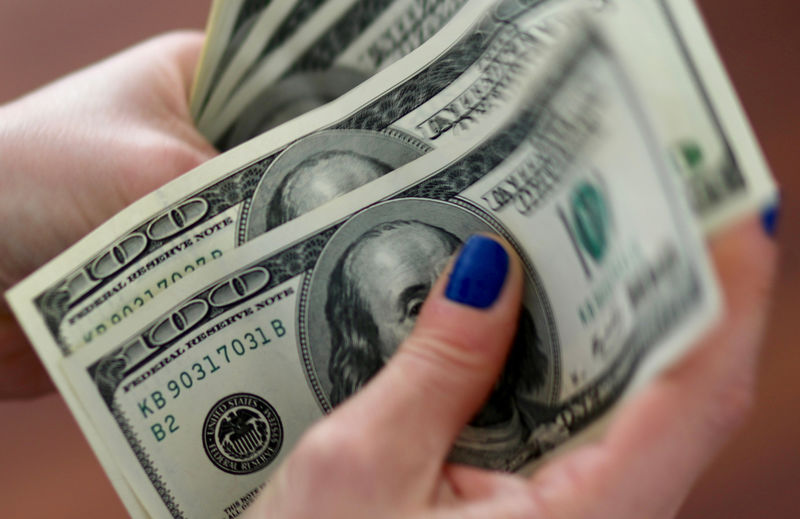By Gertrude Chavez-Dreyfuss
NEW YORK (Reuters) - The dollar edged higher on Wednesday in choppy trading after the Federal Reserve raised interest rates as expected for the eighth time, flagged more rate hikes and signaled the end of the "accommodative" policy era.
The greenback briefly fell against the euro and yen after the release of the Fed statement but slowly inched higher as market participants digested the statement.
Fed policymakers lifted the benchmark overnight lending rate by a quarter of a percentage point to a range of 2.00 percent to 2.25 percent. The central bank also removed from its policy statement a description of monetary policy as remaining accommodative.
"Today's dropping of keyword 'accommodative' from its policy statement ensures the Fed remains on course for further hikes as unemployment heads towards multi decade lows," said Robert Sierra, director at Fitch Ratings.
"The Fed continues to be very much focused on strong domestic conditions and neither trade concerns nor recent emerging market turbulence affected today's decision," he added.
For Mark McCormick (NYSE:MKC), head of North American FX strategy, at TD Securities in Toronto, however, the removal of the word "accommodative" is a dovish signal and was the reason for the initial fall in the dollar.
"To me, it means that the Fed is more or less in a neutral stance and is probably close to being done raising rates," McCormick said.
Federal Reserve Chairman Jerome Powell clarified that the removal of "accommodative" in the statement is a sign that monetary policy is proceeding in line with expectations.
In afternoon trading, the dollar index (DXY), which measures the U.S. unit against six major currencies, was up 0.1 percent at 94.179 (DXY)
The euro briefly hit session highs versus the dollar after the decision, before falling to $1.1734 (EUR=), down 0.3 percent.
Against the yen, the dollar rose was up slightly at 113.01 yen

In the statement, the Fed still foresees another rate hike in December, three more next year, and one increase in 2020.